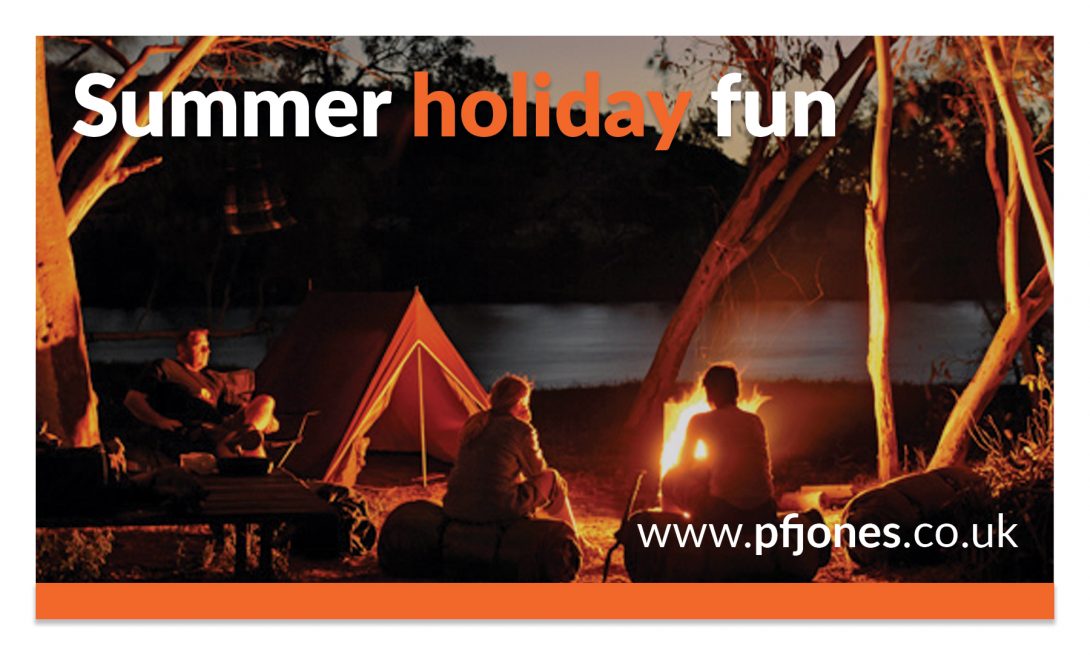Every year around 1.2 million people from the UK go camping each year, some more often than that. This is a significant percentage of the UK’s 65 million population. There are many reasons people decide to go camping, whether it is for a cheap break, to enjoy nature or for stress relief camping is an excellent option to going abroad for a holiday. In recent years the attraction of camping, campervan and caravan holidays seems to have increased, this could be partly due to the past economic downturn meaning more people would use camping as the cheap alternative, and partly due to the fact that when we’re outdoors our levels of serotonin naturally rise which can help improve the mood.
For children, the summer holidays are all about adventure and enjoyment. Camping trips – via whichever medium – are great for escapism, after only a few hours’ drive you can arrive in a different world; close to nature, but with easy access to all kinds of attractions and activities. Camping trips don’t have to just be within the UK, destinations within Europe are also easily accessible by the road as detailed in our previous blog post. Camping promotes family bonding time, it also is great for meeting other like-minded families, especially if you’ve opted for a family campsite; the children will make new friends in no time.
Deciding what to pack for a camping trip and what to leave at home is one of the biggest obstacles of going on a camping holiday because if something essential is accidentally left at home it can often prove difficult and costly trying to source that thing. Roof bars are a clever way to maximise the loading space available in a car, using the car roof top as a place to load luggage is efficient as it would otherwise go unused. Roof bars can support extra baggage with the use of a roof box, roof straps, help to transport bikes and much more when travelling. Roof bars aren’t the only way to be able to expand your packing allowance, rear mounted cargo boxes can be fitted to vehicles with tow bars and provide up to 420 litres more loading space when used with a luggage box.
Top Tip: take plenty of spare carrier bags with you for rubbish, dirty clothes, wet clothes and dirty shoes.
It is important to remember the essentials when going camping. Booking a spot way ahead of your journey is vital, as camping becomes more popular the better camping sites i.e. the ones within walking or cycling distance of a town or village or with the best facilities do tend to get fully booked quite early on in the year; leaving it 1 week before the summer holidays may find you stuck with a camping spot in one of the less desirable locations. If you’re going camping in the traditional sense; just you, your family, a tent and nature then you’ll want to bring various types of non-perishable foods along with you for snacking in the night and just whenever you get hungry. This can save a lot of money as the vending machines and food stalls at some camping sites tend to be on the more expensive side. Being well prepared in the entertainment department with books, board games, colouring books and DVDs also helps for the downtime periods throughout the day.
Now many people consider anything with electricity whilst camping as ‘glamping’ this includes a caravan, campervan or even a campsite with an electricity hook-up however if this is what you prefer then it makes many things easier like with electricity cooking heart-warming meals becomes quicker rather than the hours anything takes to heat up on a campfire, but if you’re opting for the traditional way we have plenty of easy campfire recipes to help you on your way.
When leaving the campsite please ensure to take all of your belongings and clean up after yourself, leaving the campsite the way you found it is one of things many campers forget and it can be costly, time consuming and annoying for campsite owners or the people staying next to you to have to deal with the mess you left behind. The most important thing about any camping holiday is to relax, have fun and spend time with the family.


